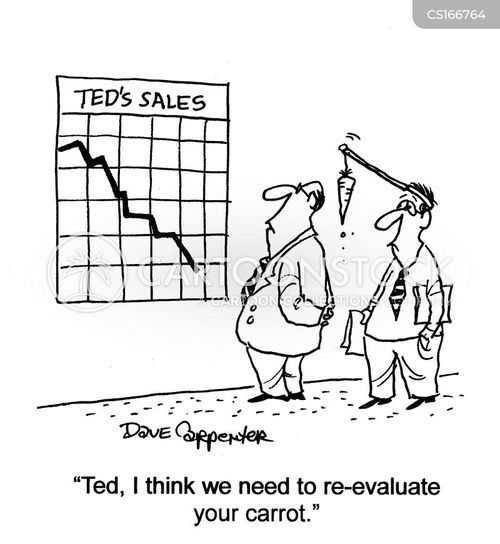100
WAYS TO MOTIVATE OTHERS
(REVISED
EDITION)
STEVE
CHANDLER & SCOTT RICHARDSON
(226
PAGES)

100
WAYS
|
NOTES
|
11
|
LEAD FROM THE FRONT
You can’t change
people.
You must be the
change You wish to see in people
- Ghandi -
It motivate others
when you are out there and you do it yourself. It’s inspiring when a boss does what he
want others to do.
Be inspiring. Leading from the front changes people more
deeply and more completely than everything else. So be what you want to see:
·
If you want your people to be
more positive, be more positive
·
If you want them to take more
pride in their work, take more pride in yours
·
If you want them to look good and
dress professionally, look better yourself.
·
Always be early.
|
12
|
PREACH THE ROLE OF THOUGHT
Great men are they who see that thought is
stronger than any material force,
that thoughts rule the world
- Ralph Waldo Emerson -
Make certain all the people you want to motivate understand the role
of thought in life.
The causal power of thought.
Nothing in the world has any meaning until they give it meaning. People don’t make your employees angry;
their own thought make them angry.
Feeling vs Thinking;
Feeling is what you get for
thinking the way you do
|
13
|
TELL THE TRUTH QUICKLY
Question: How many legs does a dog have if you
call the tail a leg?
Answer: Four. Calling a tail a leg, doesn’t make
it a leg.
- Abraham Lincoln -
Great Leader tell the
truth faster than other manager do.
Great people who lead
their teams in performance and who prosper the most from their profession,
are great givers. They stay in
constant touch with their power to do so much by constantly giving their internal
and external clients beneficial things.
·
Helpful information
·
Offers of services
·
Respect for their time
·
Support for their success
·
Cheerful friendly encounters
·
Sincere acknowledgments
Great leaders always
ask the best questions and always listen better than anyone else. Such level
of expertise can only be acquired through massive benefit-based interaction.
|
14
|
DON’T CONFUSE STRESSING OUT WITH CARING
Stress, in addition to being itself and the result of itself,
is also the cause of itself.
- Hans Selye, Psychologist -
Stressing out over our team’s goals is not the
same as caring about them. Stressing
out makes one perform worse. True
caring makes one perform better.
Leadership success comes from knowing to focus and remain
focused. So, spend your attention
where you want the greatest result.
|
15
|
MANAGE YOUR OWN SUPERVIORS
There is no such thing as constructive criticism
- Dale Carnegie -
We have had a lot of
different bosses to report to. So, the
best thing to do is to teach yourself to live and work peacefully with
change. Decide on how best to
capitalize on the change. Mixed
messages from top management is a challenge that must be dealt with.
|
16
|
PUT YOUR HOSE AWAY
Wise leaders and high achievers come to understand that they can’t
hope to eliminate problems…
and wouldn’t want to
- Dale Dauten -
Many managers are ineffective leaders because
they are fire fighters. They don’t
decide where the team is going; the fire decides for them. When letting the fire controls your life:
·
You become unconscious of
opportunity
·
You become blind to possibilities
because you are engulfed in and defined by the fire.
A great motivation doesn’t fight fires 24/7. A true motivator leads people from present
into the future. Sometimes leaders
doesn’t even have to put fire out; they sometimes just take a path around (or
above) the fire a get to the desired future.
|
17
|
GET THE PICTURE
People cannot be managed ….
Inventories can be managed,
but people must be led
- H. Ross Perot -
Leadership is a
skill. It can be taught and it can be
learned at any age if the commitment to learn is present. Always revise your picture of what a good
leader is.
Picture of a leader with a code to work
By Dale Dauten, The Laughing Warriors, Lumina Media, 2003
THINK LIKE A HERO
(Who can I help today?)
WORK LIKE AN ARTIST
(What else can we try?)
REFUSE TO BE ORDINARY
(Pursue excellence, than kill it)
CELEBRATE
(But take no credit)
|
18
|
MANAGE AGREEMENTS, NOT PEOPLE
Those that are most slow in making a promise are the most faithful in
the performance of it.
- Jean-Jacques Rousseau -
A skilful leader is compassionate and always
seeks to understand the feeling of others, but they do not try to manage
those feelings.
A leader manages agreement. A leader creates agreement with team members
and enter into those agreement on an adult-to adult basis. This is more mature, respectful, trusting
communication, more accountable, and easier to discuss uncomfortable subject.
The biggest beneficial impact of
managing agreement is on communication.
A commitment to managing agreement is basically a
commitment to being two professional adult working together.
|
19
|
FOCUS ON THE RESULT NOT THE EXCUSE
A leader has to be able to change organization
that is
dreamless, soulless and visionless….
Someone’s got to make a wake-up call
- Warren Bennis -
Leaders need to
manage the want to; not the how
to. Use the outcome management and not
the process management. Draw out and
cultivate the why.
|
20
|
COACH THE OUTCOME
Unless commitment is made,
there are only promises and hopes….
But no plans
- Peter F Drucker -
Managers need to simplify, simplify, and simplify.
Keep it as simple as you can, focusing
on outcomes and result only.
Managers should teach their people absolute
respect for personal responsibility and result. Every person is outcome-accountable as well
as activity accountable simplify and focus on result.
|
